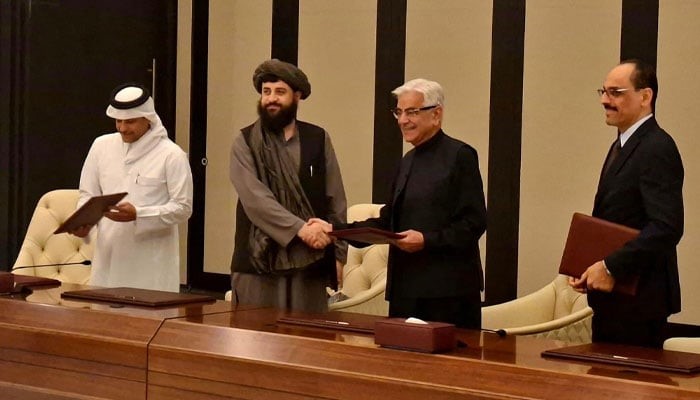Amid entrenched divisions, the talks signaled a fresh, though dogged, attempt at international mediation to bridge a perennial chasm of suspicion

MM Report
ISTANBUL: A fresh attempt at reconciliation quietly unfolded as delegations from Pakistan and Afghanistan commenced a new round of negotiations aimed at thawing the frosty relations between the two neighbors.
The talks, which began under the watchful eye of Turkish officials acting as hosts, represented a continued international effort to broker a workable dialogue between capitals long divided by mutual suspicion and border disputes.
The Pakistani side was reported to have fielded a lean, two-member delegation, its compact size suggesting a carefully calibrated approach to the sensitive discussions. Across the table, the Afghan delegation presented a more diverse composition, a gathering that hinted at the complex internal politics of the Taliban-led administration.
Its ranks included Sohail Shahin, the nation’s chargé d’affaires, whose diplomatic presence was notably bolstered by the involvement of more politically oriented figures such as Anas Haqqani and Noor Ahmad Noor, senior officials whose influence stems from their deep roots within the movement’s power structure.
This meeting in the bustling Turkish metropolis was not an isolated event, but rather the next step in a carefully choreographed diplomatic process. It followed an initial round of discussions held previously in Doha, a series that was itself mediated by the dual efforts of Qatar and Turkey.
The persistence of these third-party nations in bringing the two sides to the table underscored a growing concern within the international community about the destabilizing potential of continued friction along the Pakistan-Afghan border.
The very location of the talks—far from the fraught frontier and the echoing halls of their respective capitals—was seen as a deliberate choice to foster a neutral environment conducive to frank discussion.
The core tensions, ranging from cross-border militancy and the contentious Durand Line to Pakistan’s ongoing concerns about the recognition of the Afghan government, formed the difficult terrain negotiators were tasked with navigating.
While officials from all sides maintained a public silence on the specifics of the dialogue, the mere continuation of the process was interpreted in diplomatic circles as a faint, yet significant, signal that neither side had abandoned the path of talks.
3 Col with pic


